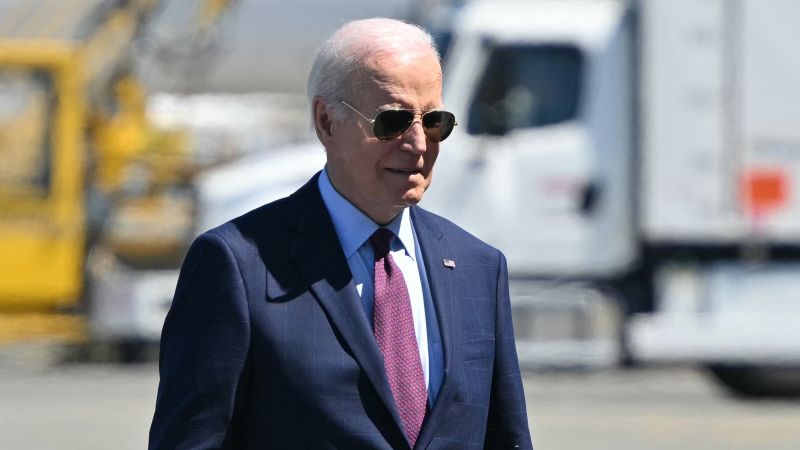President Joe Biden is increasing tariffs on $18 billion in Chinese imports across various sectors deemed crucial for national security as a way to hinder Beijing’s development of critical technologies and boost US production. The new tariff rates will apply over the next two years to imported steel and aluminum, legacy semiconductors, electric vehicles, battery components, critical minerals, solar cells, cranes, and medical products. The rates range from 100% for electric vehicles to 25% for other sectors.
The decision to increase tariffs was based on a study required by US trade law, which also mandates periodic evaluations of the effectiveness of such programs. The Biden administration has redrawn the program parameters to align with their policy priorities, particularly the shift towards clean energy. The goal is to diversify production of critical goods and technologies, ensuring resilient supply chains and promoting clean technology.
The tariffs on electric vehicles imported from China will more than quadruple to challenge Beijing’s practice of aggressive pricing strategies by domestic EV manufacturers. This move aims to level the playing field, as Chinese EVs are priced significantly lower than American counterparts due to tariffs and other factors. Previous tariff policies under the Trump administration led to retaliatory measures by China, affecting American export-related jobs.
The White House has not speculated on how China might retaliate against the increased tariffs. Treasury Secretary Janet Yellen and Secretary of State Antony Blinken raised concerns about China’s production practices during formal visits in April. Biden’s tariff speech at the United Steelworkers headquarters in Pittsburgh called for further tariffs on Chinese steel and aluminum products, highlighting unfair practices in shipbuilding.
The message of cracking down on unfair trade practices resonates with manufacturing-heavy states in the Midwest, known as the blue wall, which will be crucial in the upcoming election. However, China’s Ministry of Commerce criticized the US for false accusations and wrong practices in response to the tariff increases. The administration is hopeful that parallel investigations by other countries will support their position on addressing China’s excessive production of goods.
Overall, the Biden administration’s decision to increase tariffs on Chinese imports across critical sectors reflects a broader strategy to prioritize domestic production, ensure national security, and promote clean energy technologies. The move aims to address concerns about unfair trade practices by China and level the playing field for American industries. The impact of these tariff increases and potential retaliatory actions by China remains uncertain, but the administration is confident in the need to take a firm stance on trade issues.


